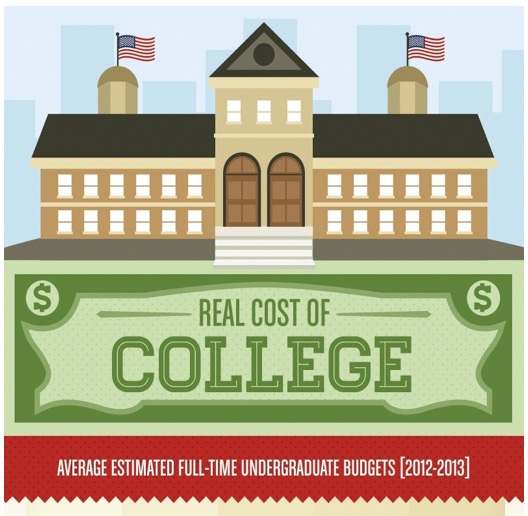 As a parent, you are probably willing to go to great lengths to ensure that your kids make it to (and through) college. You have no doubt tried hard to instill in them an understanding of the different options available to them should they complete a degree. And if you’re like most parents, you’ve likely been contributing to a college fund and you plan to help support your kids during their time in college. But even so, you simply might not have the money on hand to cover all the bills. Between tuition, books, a dorm, and other living expenses, you’re basically supporting two households–a tall order for any parent. So your children might have to take out loans, get a job, and find a few other creative ways to get the money required to pay for their education.
As a parent, you are probably willing to go to great lengths to ensure that your kids make it to (and through) college. You have no doubt tried hard to instill in them an understanding of the different options available to them should they complete a degree. And if you’re like most parents, you’ve likely been contributing to a college fund and you plan to help support your kids during their time in college. But even so, you simply might not have the money on hand to cover all the bills. Between tuition, books, a dorm, and other living expenses, you’re basically supporting two households–a tall order for any parent. So your children might have to take out loans, get a job, and find a few other creative ways to get the money required to pay for their education.
Here are five creative ways to finance a college education:
1. Crowdsourcing.
Random strangers probably aren’t going to help your kids pay for tuition and books. But their loved ones might be willing to kick in, especially if they stand to see a return on their investment. The way crowdsourcing generally works is that a business presents an idea to the public, which then decides if it will move forward via their donations (talk about putting your money where your mouth is). In return, those that donate may get free product, swag, or even cash back with interest (like a loan) when the idea comes to fruition (and to market). Your kids could make the same deal with aunts and uncles, grandparents, and so on. The real upside is that they’ll likely get better interest rates and more lenient terms all around than banks might offer.
2. Grant money.
Many kids apply for scholarships offered by their school and by outside organizations, but many forget that they can also apply for grant money (like the Pell grant) as a way to get additional funds for their schooling. These offerings are generally need-based, so your earnings could play a role in whether or not kids are able to get grants. But it’s definitely worth a try since they do not require repayment.
3. Scholarships.
Most families don’t realize that millions of dollars in scholarship money goes unused every year simply because students aren’t doing their homework to find available funds that they qualify for. Although your kids may be busy with their studies, they won’t be for long if they can’t pay their tuition. So encourage them to sign up for sites like Fastweb, Zinch, and Scholarships.com. If they apply for just one scholarship each week their odds of winning greatly improve.
4. Save everywhere.
There are so many ways for students to save money that they have no one to blame but themselves if they’re paying full price for anything. Textbooks, for example, can be purchased at a discount online (on sites like Chegg, PhatCampus, and so on) or even rented for a semester at a fraction of the cost of new (at BookRenter, eCampus, etc.). They can get numerous discounts using their student I.D., as well; all they have to do is ask to get deals on travel, entertainment, and food. This won’t exactly allow them to earn more money, but it can definitely help them to save some and put it towards college expenses.
5. Consider using other funds.
Suppose you have received structured settlements. You might want to consider selling the structured settlement for a lump sum (there are companies that buy them) as a way to send your kids to college. Yes, you will lose some money in the long run, but if you’re able to avoid student loan payments (and the interest that comes with them) it may just even out.
Get creative with college funding, especially with money that won’t have to be paid back. Don’t, however, use 401K money to finance college. It’s a poor financial decision and compromises plans for your future.







